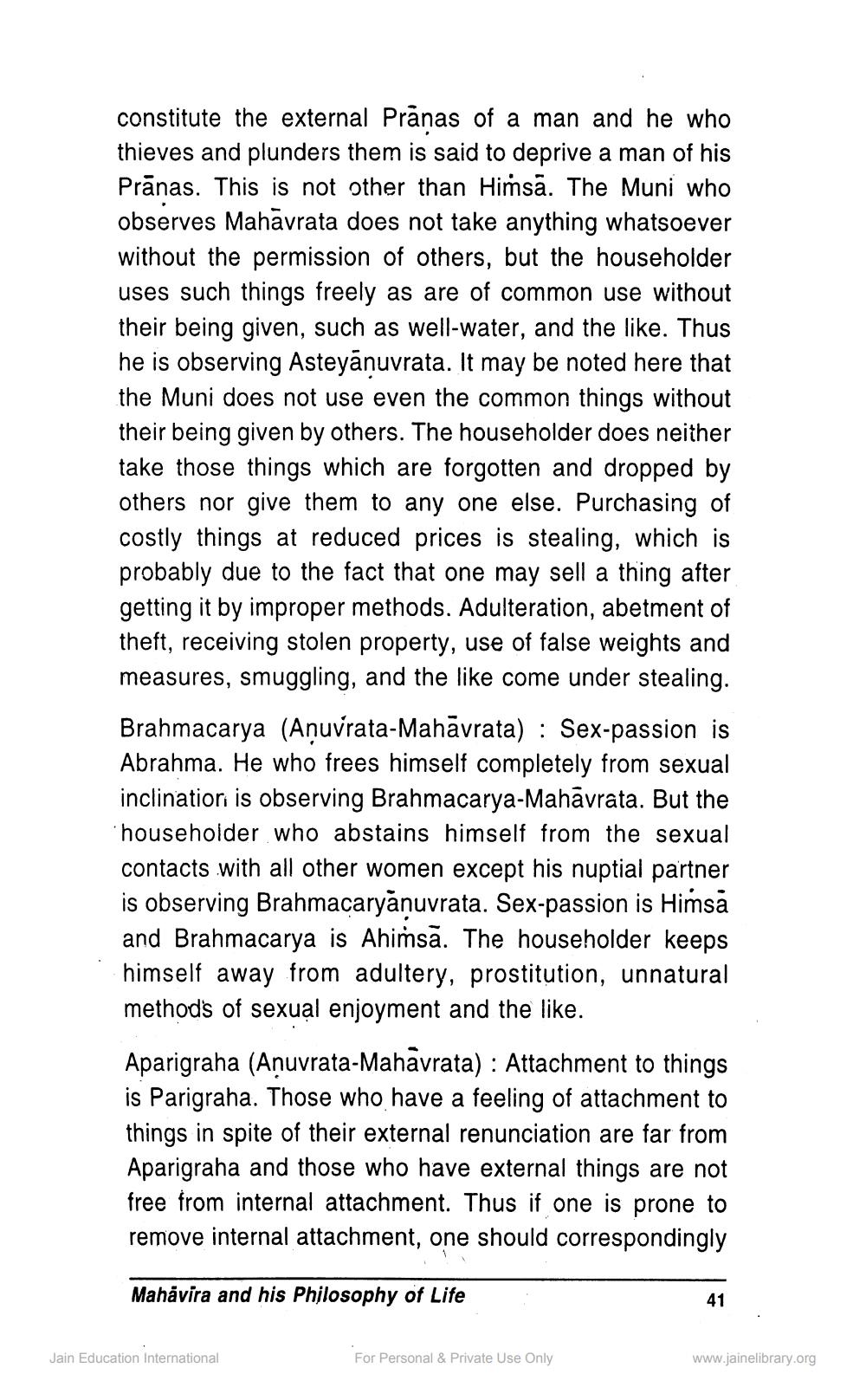________________
constitute the external Pranas of a man and he who thieves and plunders them is said to deprive a man of his Prānas. This is not other than Hissā. The Muni who observes Mahāvrata does not take anything whatsoever without the permission of others, but the householder uses such things freely as are of common use without their being given, such as well-water, and the like. Thus he is observing Asteyanuvrata. It may be noted here that the Muni does not use even the common things without their being given by others. The householder does neither take those things which are forgotten and dropped by others nor give them to any one else. Purchasing of costly things at reduced prices is stealing, which is probably due to the fact that one may sell a thing after getting it by improper methods. Adulteration, abetment of theft, receiving stolen property, use of false weights and measures, smuggling, and the like come under stealing. Brahmacarya (Aņuvrata-Mahāvrata) : Sex-passion is Abrahma. He who frees himself completely from sexual inclination is observing Brahmacarya-Mahāvrata. But the householder who abstains himself from the sexual contacts with all other women except his nuptial partner is observing Brahmacaryānuvrata. Sex-passion is Himsa and Brahmacarya is Ahimsa. The householder keeps himself away from adultery, prostitution, unnatural methods of sexual enjoyment and the like. Aparigraha (Anuvrata-Mahāvrata) : Attachment to things is Parigraha. Those who have a feeling of attachment to things in spite of their external renunciation are far from Aparigraha and those who have external things are not free from internal attachment. Thus if one is prone to remove internal attachment, one should correspondingly
Mahavira and his Philosophy of Life
Jain Education International
For Personal & Private Use Only
www.jainelibrary.org




